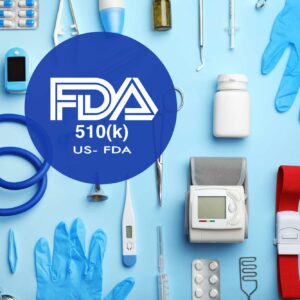As you lovingly purchase essential oils and aromatherapy products for your Valentine or add a sprinkle of “love” in their breakfast food this Valentine’s Day, you may want to double check that these products are FDA compliant!
Under FDA regulations, fragrance products such as essential oils that are marketed with aromatherapy claims that they will treat health problems or improve well-being may be regulated by FDA as a drug depending on their intended use. FDA determines a product’s intended use through a variety of considerations including through product labeling, website, advertising and promotional claims, and through what consumers expect the product to do. For instance, soaps, lotions, and massage oils containing essential oils and marketed as an aromatherapy product (even if it contains plant-friendly ingredients) can be regulated as a drug if such products make claims to ease pain, relax muscles, or help you sleep. FDA has issued several not-so-rosy warning letters to businesses over the years for marketing unapproved and misbranded aromatherapy products with claims such as “assists with daily pain”, “relieves stress and fatigue” and “provides relief from occasional aches and pains.”
Recently, FDA notified consumers of certain products promoted for sexual enhancement and energy that the Agency found contained hidden active drug ingredients that were not listed on the product labels, including some with ingredients found in prescription drugs. FDA advised that retailers and distributors, including online marketplaces, do not effectively prevent these types of potentially harmful products from being sold to consumers. Accordingly, consumers and businesses should double-check that both purchased and/or marketed products are compliant and do not pose health risks.
In addition, we remind businesses that advertising claims that a product can prevent, treat, or cure human disease must be supported by competent and reliable scientific evidence, including when appropriate, well-controlled human clinical studies. FDA has warned that to make or exaggerate such claims, whether directly or indirectly, through the use of a product name, website name, metatags, or other means, without rigorous scientific evidence sufficient to substantiate the claims, violates the FTC Act. The new Modernization of Cosmetics Regulation Act (MoCRA) also imposes labeling and substantiation requirements for cosmetics and personal care products, in addition to other requirements as reported here, that businesses should now be implementing.
On the food side, FDA has stated that “love” cannot be listed as an ingredient in a product label, as it considers the information to be intervening material since it is not part of the common or usual name of the ingredient. Several years ago, the Agency showed it was not in a lovey-dovey mood when it issued a Warning Letter to a Massachusetts bakery admonishing that a playful ingredient listing with “love” rendered the product misbranded, in addition to several other violations. As a result, we remind businesses to use other jovial and fun expressions to entertain consumers outside the required information in product labeling.
We wish you a Happy Valentine’s Day!
What do you call sweets that can keep a beat?
Candy rappers.
For questions on this article, or on FDA regulation and enforcement issues, please contact info@garg-law.com.


